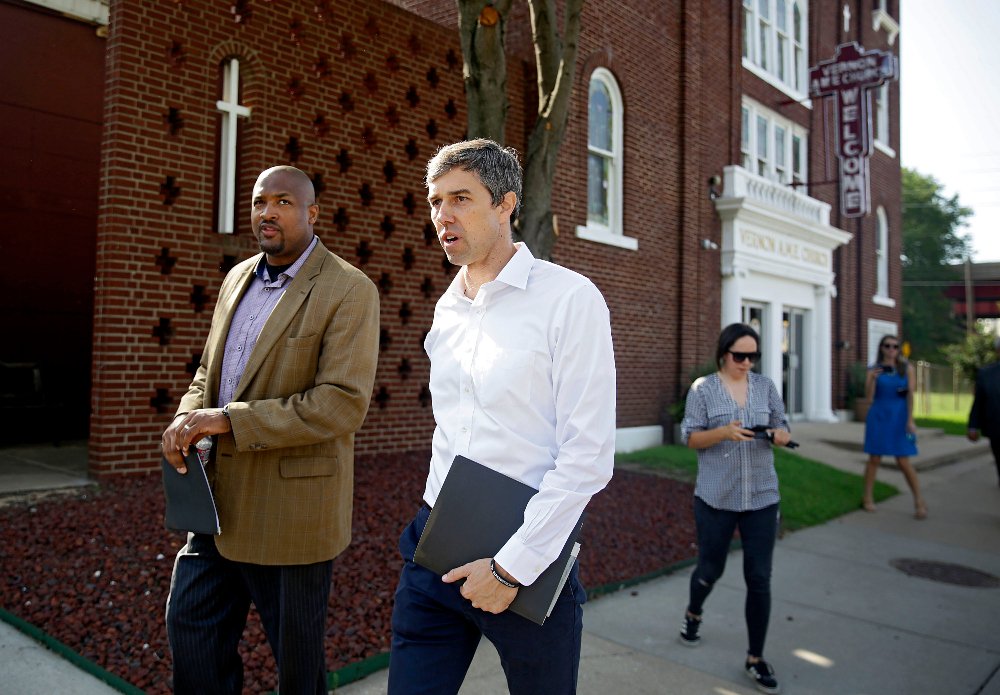[ad_1]
Democratic presidential candidate Beto O’Rourke this week visited sites in Tulsa and Oklahoma City that were targeted by violence, and made a point of linking the Tulsa race riots and a recent deadly mass shooting in his Texas hometown.
The former congressman stopped Monday in Tulsa’s Greenwood District, where a white mob in 1921 looted black businesses , left homes and churches smoldering and killed an estimated 300 people. He later visited the Oklahoma City National Memorial and Museum, which honors the 168 victims of a 1995 domestic terrorist bombing of a federal building.
O’Rourke’s visit to Oklahoma followed the Aug. 3 shooting in El Paso, Texas, where a white nationalist killed 22 people and wounded two dozen others. Police said the attacker targeted Mexicans when he went into a Walmart with an AK-47 assault rifle. The shooting is one of the deadliest in U.S. history.
“What I find Tulsa doing for me and for the rest of America today is to connect those dots all the way back to 1921 and before — the very foundation of this country,” O’Rourke said. “Not only are we as divided as we’ve ever been, but the racism that has been foundational to this country has now been admitted out into the open. And people are acting on that,” he said.
Following the El Paso shooting, O’Rourke suspended his campaign for nearly two weeks. He rejoined the race last Thursday with a speech to his grieving hometown, in which he called out President Donald Trump as morally unfit for a second term. And while many top Democrats have indirectly blamed the president for the El Paso shooting, O’Rourke took it further, lashing out at reporters who asked about his comments.
“He’s been calling Mexican immigrants rapists and criminals,” O’Rourke responded.
Trump has since accused O’Rourke of exploiting tragedy to boost his campaign.
During his Oklahoma visit this week, O’Rourke recounted some of Trump’s most incendiary remarks.
“If I don’t stand up to this — if I don’t stand up and connect the dots for my fellow Americans — then I have failed this country. I have failed my community,” O’Rourke said.
He also praised Greenwood’s strength in rebuilding after the 1921 race riots.
“That is how Greenwood will be defined — its resilience and how it has overcome, not the acts of violence and racism against it,” O’Rourke said. “So I’m learning from the people of Oklahoma, learning from our past to ensure we are safer and more secure going into our future.”
[ad_2]
Source link

